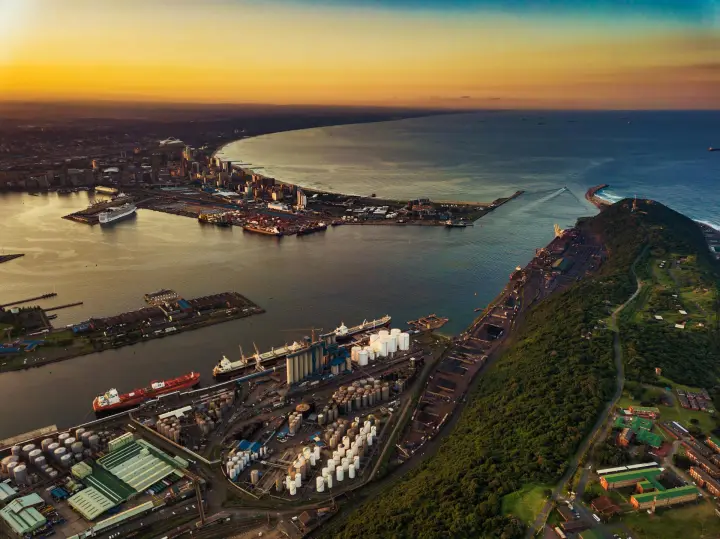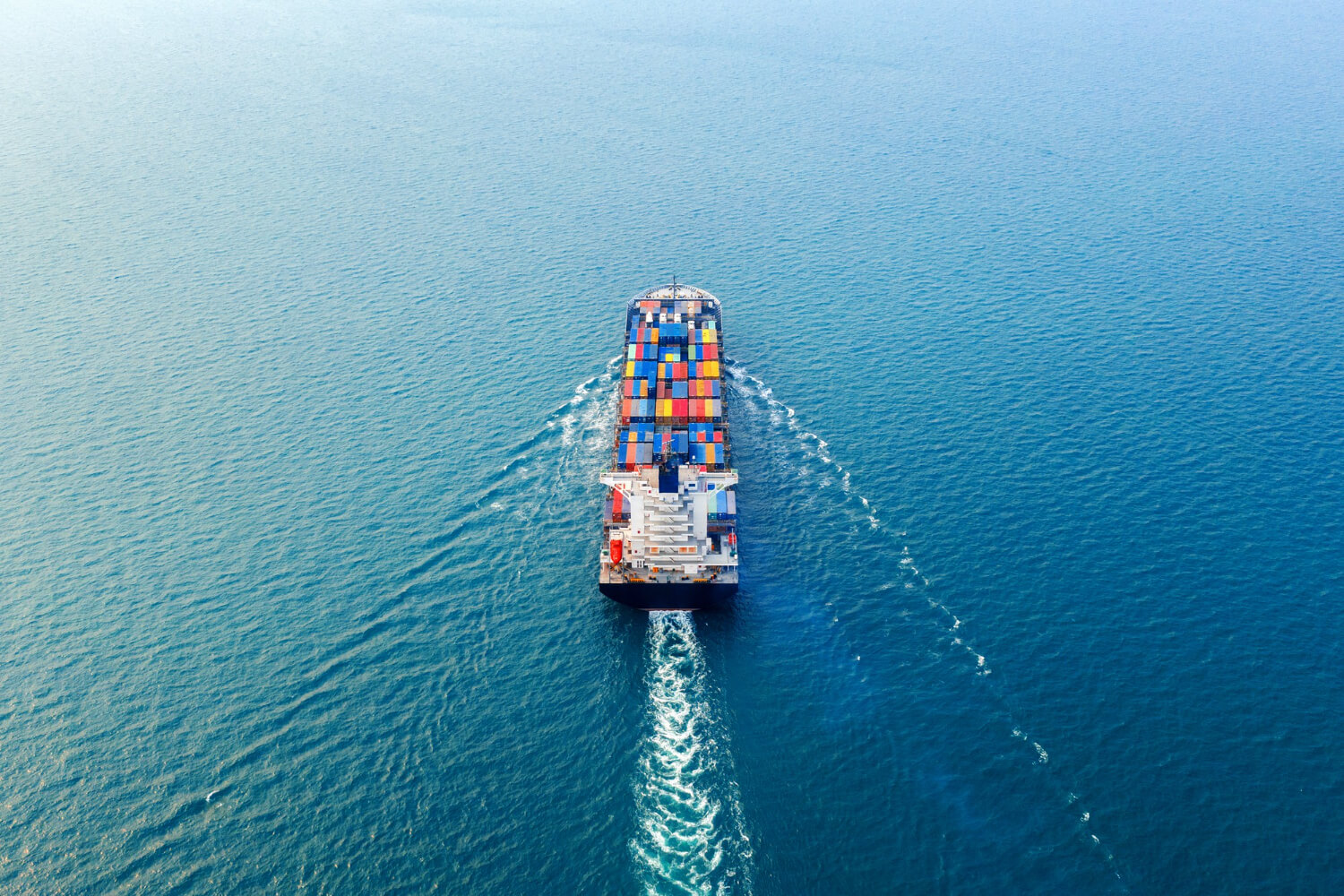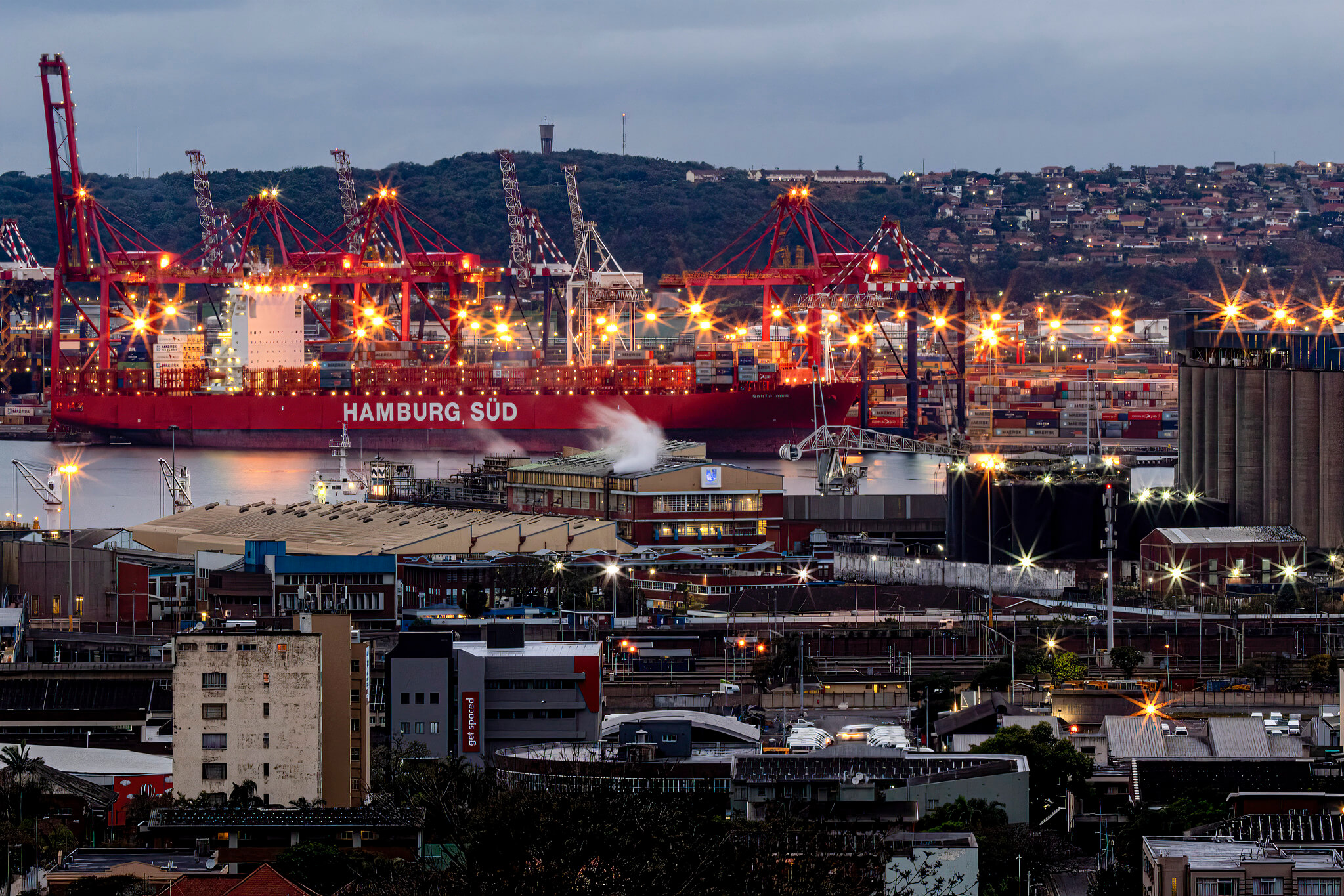SPONSORED CONTENT
Putting a price on global shipping emissions can be a game-changer for South Africa

We live in extraordinary times. Humanity faces multiple concurrent crises which require decisive collective action. The most obvious risk of all is climate change, which has occurred due to almost total worldwide reliance on fossil fuel to meet energy requirements.
The global need for energy continues to rise, with IEA forecasts of a 50% surge in energy requirements by 2030. This reliance on fossil fuel has resulted in global warming, biodiversity loss and extreme weather events in the global system. This in turn places land, ocean and society at risk of surpassing critical tipping points, beyond which we venture into unsafe planetary conditions.
Historically the ocean has always been the lifeblood of transport, providing the arteries for moving goods around the world. However, the international maritime shipping industry is one of the major contributors to greenhouse gas emissions, responsible for a staggering (almost) 3% of all global emissions. Global trade and maritime shipping are projected to continue growing. The OECD estimates a tripling of global freight demand by 2050 resulting in excess of 120 000 billion tonne-miles. However, the close relationship between global economic growth and fossil fuel demand is being loosened by the emergence of a new clean energy economy.

Shipping remains a largely untaxed, fossil-fuelled, multi-billion dollar sector that emits more than all but the top five biggest country emitters worldwide and more than twice the amount of South Africa each year. A pivotal solution in this sector is to transition to environmentally friendly fuels, which would contribute to reducing the release of greenhouse gases. There are strong signs of an acceleration in clean energy transitions worldwide. Not surprisingly, rational equitable economic levers to facilitate a transition to green fuels for the maritime shipping industry are also on the horizon.
Last year, South Africa was part of a significant diplomatic win aimed at regulating maritime shipping industry emissions. At a meeting of the UN’s maritime agency tasked with climate regulation of shipping, the London-based International Maritime Organization (IMO), South Africa supported a historic agreement to cut shipping emissions by 30% by 2030 and by 80% by 2040, in order to reach net zero by 2050.
These new and tougher targets will avoid over 10 billion tonnes of CO2 cumulatively between now and 2050 worldwide compared with a business as usual scenario. By comparison, this equates to shutting down the equivalent of 42 Komati Coal Power Stations.
In the coming weeks, countries will meet at the IMO negotiations to address the mechanisms required to clean up this industry. Governments are progressing towards policies to implement these climate commitments. As a leading Southern Africa nation, with an extensive infrastructure supporting the maritime transport sector, there is an opportunity for South Africa to lead the way in designing these measures. One key policy under discussion is to put a price on shipping emissions – a levy per tonne – which the IMO has agreed to adopt in 2025. The initiators and biggest drivers of this policy at the IMO are the Pacific Island nations, with their proposal for a levy of $150/tonne of greenhouse gases.
Over 100 countries worldwide agree that shipping emissions pricing is necessary, with 20 African nations calling for the adoption of a levy at the UN under the Nairobi Declaration last year. The African Union urged world leaders to consider the proposal for a global carbon taxation regime including a carbon tax on fossil fuel trade and maritime transport. This was seen as necessary to facilitate affordable and accessible finance for climate-positive investments at scale.

The policy would require shipping companies to pay a levy for every tonne of greenhouse gases emitted from their polluting vessels, and as such help bridge the price gap between currently cheap fossil fuels and green, but more costly, alternative energy. At the same time, the mechanism would also generate billions of dollars each year in funding that is separate and additional to the so-called ‘Loss and Damage’ finance agreement negotiated at the COP 28 in Sharm el Sheik 2023.
Apart from the volume of greenhouse gases emitted by the maritime transport industry, the industry itself is vulnerable to climate change. For example, the drought in Panama at the end of 2023 rattled global trade when the freshwater Panama Canal levels dropped to extremely low levels, causing a bottleneck of cargo ships. Ports, supply chains and shipping infrastructure are vulnerable to climate-related disruptions. Revenue generated from a carbon tax on fuel could be earmarked for investments to improve the resilience of ports, supply chains and other shipping infrastructures to climate-related disruptions. South Africa’s maritime trade is increasingly at risk of climate disruption. The extreme storms in 2022 which caused tragic loss of life and also severely disrupted the Port of Durban, one of the largest shipping terminals in Africa.

Durban Port
While the pricing policy under debate is first and foremost a tool for cleaning up shipping, it can have far reaching benefits that go beyond the sector. The Pacific Island nations, backed on this by the World Bank, are suggesting that a dedicated pot of the revenue is used for climate action and projects outside the maritime sector. Other countries argue that the revenue generated should be utilized to green the maritime shipping sector.
In South Africa for example, this could be used as additional funding for our country’s renewable energy infrastructures, for producing and exporting green hydrogen. Green hydrogen is one of our country’s biggest economic opportunities, and coincidentally it is also one of the most credible solutions for shipping’s clean energy transition. Transitioning ships from fossil fuels to non-carbon based fuels like green hydrogen would help protect ocean health by reducing disastrous oil spills that harm, or in some cases completely eradicate, precious marine wildlife. Algoa Bay—a major tourist hub and habitat for African penguins—is one of the saddest, constant reminders of shipping’s harm in South Africa. Conservationists have repeatedly warned the coastal communities and its penguin population is continuously threatened by oil leaking from ships that refuel in the vicinity of the Bay. Green hydrogen-powered ships would also avoid noise, air and chemical pollution associated with conventional fossil fuels.
Notwithstanding the benefits for ocean sustainability and for the industry itself, some tough questions regarding the emissions price and the revenue distribution will be negotiated. Several countries are concerned that the levy may result in a “distance tax”. For nations which are geographically distant from the primary shipping hubs in North America and Europe, the levy could result in an inequitable distribution of responsibility given that these states are proportionately less responsible for the carbon legacy. Financial mechanisms may need to be developed to account for the so-called “common but differentiated responsibility principle” enshrined in international environmental law. At the same time, another international principle – “polluter pays” – also applies here. This industry is set to triple, and rational levers to transition towards a more sustainable solution are unquestionably required. Trade-offs will need to be made. The IMO has already committed to using the revenue to ensure an equitable transition in the industry—e.g. to support the shipping’s energy transition from fossil fuels, and to ensure all developing countries affected by this process, such as South Africa, are assisted and compensated.
South Africa has a unique opportunity to assume diplomatic leadership on the world stage by supporting a meaningful levy with revenue distribution that benefits the country, its people and ocean health. As countries meet again for formal talks in London on 11-22 March, Ramaphosa’s government and South Africa’s delegates at the IMO must not miss this opportunity to support a fair and meaningful levy for the benefit of South Africans, and for all. DM

















 Become an Insider
Become an Insider